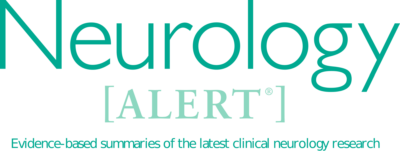
Neurology Alert – June 1, 2023
June 1, 2023
View Issues
-
A Primer on Excessive Daytime Sleepiness and Narcolepsy
Many new drugs are coming on the market to treat daytime sleepiness, as well as insomnia, as the prevalence of sleep disorders continues to grow in modern society. Neurologists should familiarize themselves with these disorders and the various ways to treat them safely.
-
Lovastatin for Reducing Risk and Delaying Onset of ALS
Amyotrophic lateral sclerosis (ALS) is a neurodegenerative disease without available treatments that significantly alter the disease course. Using Medicare databases and pharmacy records, with multiple logistic regression models, researchers studied three candidate drugs (lovastatin, sulfasalazine, and telmisartan) that were identified as possible therapies for ALS and their effects on SOD1G93A transgenic mice. Animal testing showed a delay in disease onset and prolonged survival in mice treated with a mouse-equivalent dose of lovastatin 40 mg, but showed no benefit from the other two candidate drugs.
-
Trichloroethylene Exposure Has Been Linked to an Increased Risk of Parkinson’s Disease
Preliminary evidence suggests trichloroethylene is a potential environmental risk factor for Parkinson’s disease. Further research is needed to confirm this association.
-
Somatic Variants in Ras/Raf/MAPK Pathway Play a Role in Mesial Temporal Lobe Epilepsy
Eleven somatic variants enriched in the hippocampus were detected in a group of patients with drug-resistant mesial temporal lobe epilepsy (MTLE). Most somatic variants are mutations in the Ras/Raf/mitogen-activated protein kinase (MAPK) pathway. Overactivation of the Ras/Raf/MAPK pathway was detected in MTLE with somatic variants.
-
Involvement of the Peripheral Nervous System in Neurolymphomatosis
Lymphoma that presents with peripheral neuropathy is a challenging diagnosis. Diagnosis and treatment often are delayed, but they can be facilitated by early consideration and imaging with fluorodeoxyglucose-positron emission tomography. Early diagnosis and hematologic treatment may be effective.
